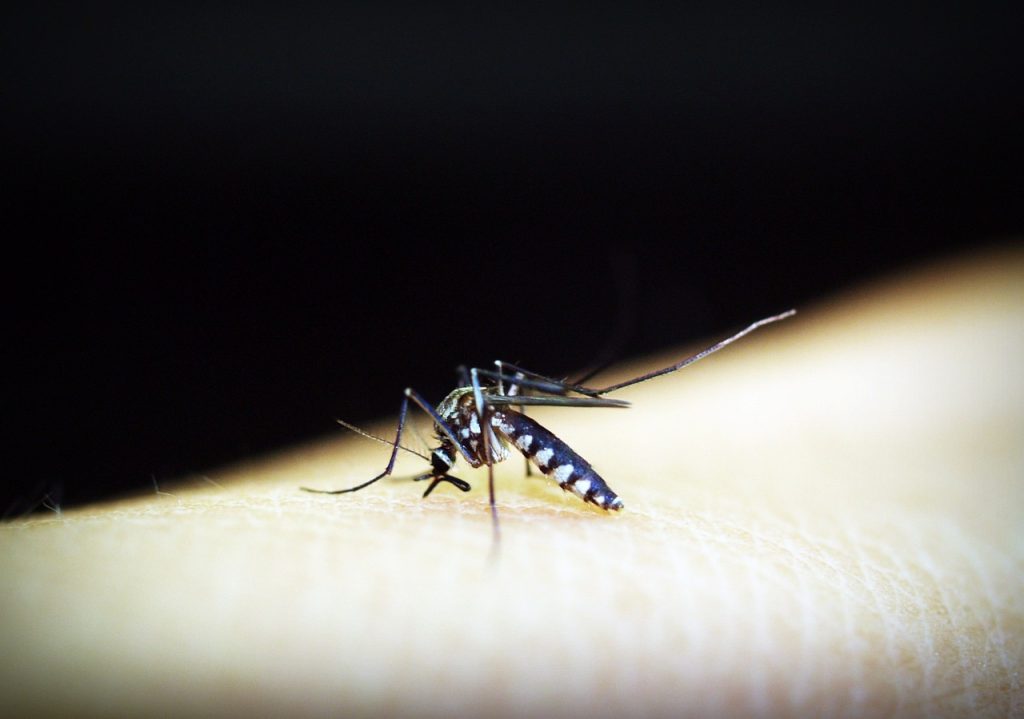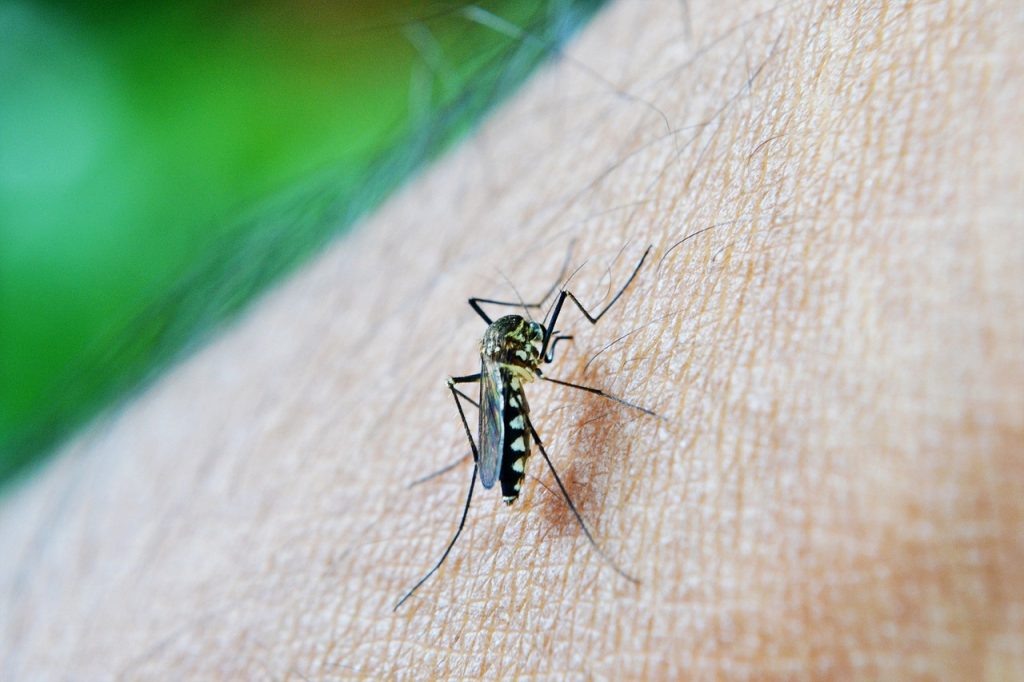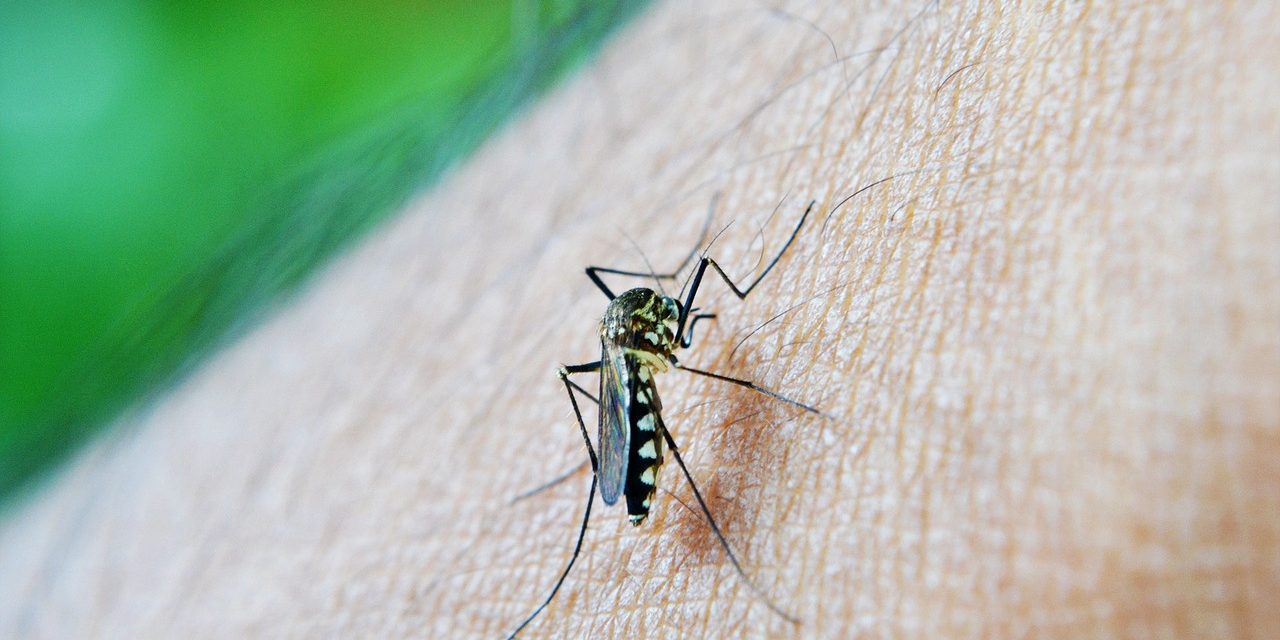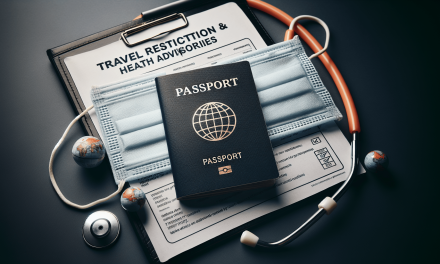So you’re planning a trip to Zimbabwe, huh? Well, before you start packing your bags, you might want to consider a crucial question: do you need to take malaria prophylaxis when visiting this beautiful African country? Malaria is a serious disease transmitted through mosquito bites, and it’s prevalent in certain parts of Zimbabwe. In this article, we’ll take a closer look at the risks, preventive measures, and factors to consider when deciding whether or not to take malaria prophylaxis during your stay in Zimbabwe. Time to get informed and make the best choice for a safe and enjoyable adventure!

Understanding Malaria
What is malaria?
Malaria is a serious and potentially life-threatening disease caused by the transmission of the Plasmodium parasite through the bite of infected female Anopheles mosquitoes. It is prevalent in many tropical and subtropical regions, including Zimbabwe.
How is malaria transmitted?
Malaria is transmitted through the bite of infected female Anopheles mosquitoes. When a mosquito bites a person who has malaria, it ingests the parasites along with the blood. The parasites then go through a cycle of growth and multiplication inside the mosquito before being transmitted to another person when the mosquito bites again.
What are the symptoms of malaria?
Common symptoms of malaria include high fever, chills, sweats, headache, body aches, fatigue, nausea, and vomiting. These symptoms often resemble those of the flu, making it difficult to diagnose malaria without proper testing.
Why is malaria a concern in Zimbabwe?
Malaria is a concern in Zimbabwe due to the significant burden it places on public health and the potential impact it can have on travelers. Zimbabwe has a high prevalence of malaria, particularly in rural and malaria-prone areas. The disease poses a risk to both locals and visitors, and if left untreated, it can lead to severe complications and even death.
Malaria Risk in Zimbabwe
What is the risk of contracting malaria in Zimbabwe?
The risk of contracting malaria in Zimbabwe varies depending on the location and season. The northern and eastern parts of the country, including areas such as Victoria Falls, Hwange National Park, and Mana Pools, have a higher risk of malaria transmission. However, it is important to note that malaria can be present in some areas that are considered low risk, especially during peak transmission seasons.
Which areas in Zimbabwe are at a higher risk of malaria?
Malaria is more prevalent in the northern and eastern regions of Zimbabwe, where the climate and environmental conditions favor mosquito breeding. These areas include Zambezi Valley, Victoria Falls, and regions near Lake Kariba. It is crucial to consider the specific regions you plan to visit and their malaria risk levels when assessing the need for prophylaxis.
Are there specific seasons when malaria risk is higher?
Malaria transmission in Zimbabwe is typically highest during the rainy season, which lasts from November to April. During this period, mosquito populations increase, and the risk of contracting malaria escalates. It is essential for travelers to be particularly vigilant and take necessary precautions, including prophylaxis, during these months.
Malaria Prophylaxis Options
What is malaria prophylaxis?
Malaria prophylaxis refers to the preventive measures taken to reduce the risk of contracting malaria. It involves using medications that are effective against the Plasmodium parasite to prevent the infection from taking hold in the body.
What are the available malaria prophylaxis options?
There are several medication options available for malaria prophylaxis, including chloroquine, atovaquone-proguanil, doxycycline, and mefloquine. These medications work by either killing the parasites in the bloodstream or preventing their replication within the body.
Which factors should be considered in choosing the right prophylaxis?
When choosing the right malaria prophylaxis, factors such as the individual’s health status, previous experiences with anti-malarial medications, duration of travel, the specific location in Zimbabwe, and any potential drug interactions should be taken into account. It is crucial to consult a healthcare professional to determine the most appropriate option based on individual circumstances.
What are the pros and cons of different malaria prophylaxis options?
Each malaria prophylaxis option has its own set of pros and cons. For instance, chloroquine is generally well-tolerated but may not be effective in certain regions due to drug resistance. Atovaquone-proguanil is convenient as it is taken once daily, but it may be more expensive. Doxycycline provides additional protection against other infections but can cause sensitivity to sunlight. Mefloquine is effective against resistant strains but can have rare but severe neuropsychiatric side effects. Consulting a healthcare professional can help weigh these factors and select the most suitable option.
Consulting a Healthcare Professional
Why is it important to consult a healthcare professional?
Consulting a healthcare professional is essential when considering malaria prophylaxis in Zimbabwe. They have the expertise to assess individual risk factors and provide personalized recommendations based on factors such as medical history, current medications, and allergies. They can also advise on potential side effects, drug interactions, and alternative options if prophylaxis is not feasible.
What should you discuss with the healthcare professional?
When consulting a healthcare professional, it is important to discuss your travel plans, including the specific regions and duration of your stay in Zimbabwe. They will consider factors such as your overall health, any allergies or intolerances, and potential interactions with other medications. Vaccination history and previous experiences with anti-malarial medications should also be discussed. By communicating these details, the healthcare professional can better assess individual risk and tailor the prophylaxis recommendation accordingly.
What are the alternatives if you are unable to take malaria prophylaxis?
If you are unable to take malaria prophylaxis due to contraindications or personal reasons, it is crucial to take additional precautions to minimize the risk of contracting malaria. These precautions include using insect repellents, sleeping under mosquito nets, wearing long-sleeved clothing, and minimizing outdoor activities during peak mosquito biting times. Regularly checking for any symptoms of malaria and seeking prompt medical attention if any arise is also crucial.

Personal Risk Assessment
Factors to consider in assessing your personal risk of malaria
Assessing your personal risk of malaria involves considering various factors, including the specific regions you plan to visit, the duration of your stay, and the time of year you will be traveling. Your overall health, age, immune status, previous experiences with malaria, and any underlying medical conditions should also be taken into account. Consulting a healthcare professional can help in conducting a comprehensive assessment and determining the most appropriate prophylaxis or preventive measures.
What is your tolerance for risk?
Your personal tolerance for risk plays a significant role in deciding whether to take malaria prophylaxis. Some individuals may have a higher tolerance for risk and be comfortable relying solely on preventive measures such as insect repellents and bed nets. Others may have a lower tolerance and prefer the added protection provided by prophylactic medications. Understanding your own risk tolerance is important in making an informed decision regarding malaria prevention.
Have you had malaria before?
If you have had malaria before, it is crucial to discuss this with a healthcare professional. Previous exposure to malaria may not confer complete immunity, and the severity of the disease can vary. The healthcare professional can assess your risk based on the specific strain of malaria you were infected with previously and provide appropriate recommendations for prophylaxis or preventive measures.
Do you have any underlying medical conditions?
Individuals with underlying medical conditions may have a higher risk of complications if they contract malaria. It is essential to discuss any underlying medical conditions, such as immunodeficiency disorders or chronic illnesses, with a healthcare professional. They can evaluate the potential interactions between the medications for the underlying condition and the malaria prophylaxis options, ensuring the most suitable course of action is taken.
Preventing Malaria
How can you prevent malaria besides taking prophylaxis?
In addition to taking malaria prophylaxis, there are several preventive measures that can help reduce the risk of contracting malaria. These include using insect repellents containing DEET, wearing long-sleeved clothing, using mosquito nets, avoiding outdoor activities during peak mosquito biting times (typically dusk and dawn), and staying in air-conditioned or well-screened accommodations. It is important to adhere to these precautions consistently, as they can significantly reduce the likelihood of mosquito bites and malaria transmission.
What precautions should you take to avoid mosquito bites?
To avoid mosquito bites, it is recommended to apply insect repellents to exposed skin and clothing. Using repellents containing DEET, picaridin, or oil of lemon eucalyptus provides effective protection. Wearing long-sleeved shirts, long pants, socks, and closed-toe shoes can create a physical barrier against mosquito bites. Sleeping under mosquito nets, especially those treated with insecticide, is also essential, particularly in areas where mosquito populations are prevalent.
Are there any specific measures for staying in malaria-prone areas?
When staying in malaria-prone areas, additional measures can be taken to reduce the risk of mosquito bites and malaria transmission. These include ensuring accommodations have proper screens on windows and doors, using air conditioning or fans, and regularly inspecting rooms for any mosquitoes or mosquito breeding sites. Additionally, minimizing outdoor activities during peak mosquito biting times and wearing protective clothing can further reduce the risk.

Side Effects and Interactions
What are the common side effects of malaria prophylaxis?
Malaria prophylaxis medications can have side effects, although they vary depending on the specific medication. Common side effects may include nausea, diarrhea, headache, dizziness, rash, or sun sensitivity. However, it is important to note that not everyone experiences these side effects, and the severity and frequency can vary. If any side effects are experienced, it is recommended to inform a healthcare professional for further guidance.
Can malaria prophylaxis interact with other medications?
Yes, malaria prophylaxis can potentially interact with other medications. It is crucial to disclose all current medications, including over-the-counter drugs, herbal supplements, and any other prescription medications to a healthcare professional. They can evaluate potential interactions and make necessary adjustments to the prophylaxis regimen to avoid any adverse effects or reduced efficacy.
Are there any specific precautions for pregnant or breastfeeding women?
Pregnant or breastfeeding women should exercise caution when taking malaria prophylaxis. Some medications may be contraindicated or have potential risks for the developing fetus or breastfed infant. Healthcare professionals can provide guidance on safe and effective options for malaria prevention during pregnancy or while breastfeeding. It is important to balance the risks of malaria with the risks and benefits of various prophylaxis options.
Health Insurance Coverage
Does your health insurance cover malaria prophylaxis?
Health insurance coverage for malaria prophylaxis varies depending on the specific insurance plan. Some plans may provide coverage for anti-malarial medications, while others may only cover a portion of the cost or none at all. It is recommended to review your insurance policy or consult with your insurance provider to determine the extent of coverage for malaria prophylaxis.
What are the costs involved in taking malaria prophylaxis?
The costs involved in taking malaria prophylaxis include the price of the medication itself, consultation fees with healthcare professionals, and any necessary medical tests or follow-up visits. The costs can vary depending on the specific medication, location, and healthcare provider. It is advisable to budget for these expenses and seek clarification from healthcare professionals or pharmacies regarding the costs involved.
What are the alternatives if you don’t have health insurance coverage?
If you don’t have health insurance coverage for malaria prophylaxis, there are still options available to ensure your protection. Some medications used for malaria prophylaxis are available over the counter at pharmacies or can be purchased at a lower cost. Additionally, organizations or clinics specializing in travel medicine may offer affordable or discounted rates for consultations and medications. You can also inquire about assistance programs or resources that provide support for individuals without health insurance.
Current Guidelines and Recommendations
What do international health organizations recommend for malaria prophylaxis in Zimbabwe?
International health organizations, such as the World Health Organization (WHO) and the Centers for Disease Control and Prevention (CDC), provide guidelines and recommendations for malaria prophylaxis in Zimbabwe. These organizations typically advise travelers to assess their personal risk, consider the specific locations and seasons, and consult a healthcare professional for individualized recommendations. The guidelines also emphasize the importance of taking preventive measures, such as using insect repellents and sleeping under mosquito nets.
Are there any specific guidelines for travelers from different countries?
Some countries may have specific guidelines or recommendations for their residents traveling to malaria-endemic regions like Zimbabwe. These guidelines may be tailored to the malaria risk level in the home country and provide additional insights or requirements for travelers. It is advisable to check with the relevant national health authorities or travel health websites for any country-specific guidelines or recommendations.
Final Decision and Travel Plans
Making an informed decision about taking malaria prophylaxis
Making the final decision about taking malaria prophylaxis involves carefully considering all the available information and weighing the individual risks and benefits. Assessing personal risk factors, consulting with healthcare professionals, and understanding the travel plans and duration of stay in malaria-prone areas are essential elements in making an informed decision. Ultimately, the decision should prioritize personal health and safety.
Considering the duration of your stay in malaria-prone areas
The duration of your stay in malaria-prone areas is an important factor in determining the need for prophylaxis. For short visits, preventive measures such as insect repellents and mosquito nets may provide adequate protection. However, for longer stays, prophylactic medications may be strongly recommended to ensure continuous protection during the entire duration of the visit.
Planning your travel itinerary with the malaria risk in mind
When planning your travel itinerary to Zimbabwe, it is crucial to take the malaria risk into account. If you are visiting areas with a higher risk of malaria transmission, it is important to plan your activities and accommodations accordingly. Additionally, scheduling your travel during lower transmission seasons can help reduce the risk. Being aware of the malaria risk in each region and taking the necessary precautions can contribute to a safer and healthier travel experience.
Being aware of emergency medical facilities in Zimbabwe
Before traveling to Zimbabwe, it is essential to familiarize yourself with the location and accessibility of emergency medical facilities. This includes knowing the nearest hospitals or clinics capable of treating malaria and investigating the availability of emergency evacuation services if needed. Having this knowledge and information readily available can provide peace of mind and enable prompt and appropriate medical care in the event of an emergency.
In conclusion, understanding malaria, assessing individual risk factors, considering appropriate prophylaxis options, and taking preventive measures are crucial steps in protecting yourself from malaria when visiting Zimbabwe. By consulting with healthcare professionals, following guidelines and recommendations, and staying informed about the current malaria situation, you can make an informed decision and enjoy a safer and healthier travel experience in Zimbabwe.












